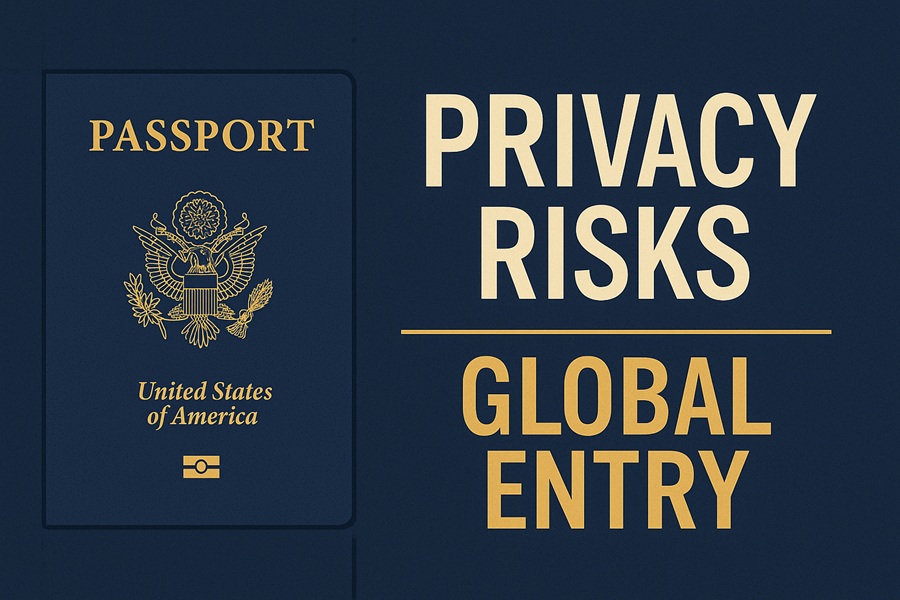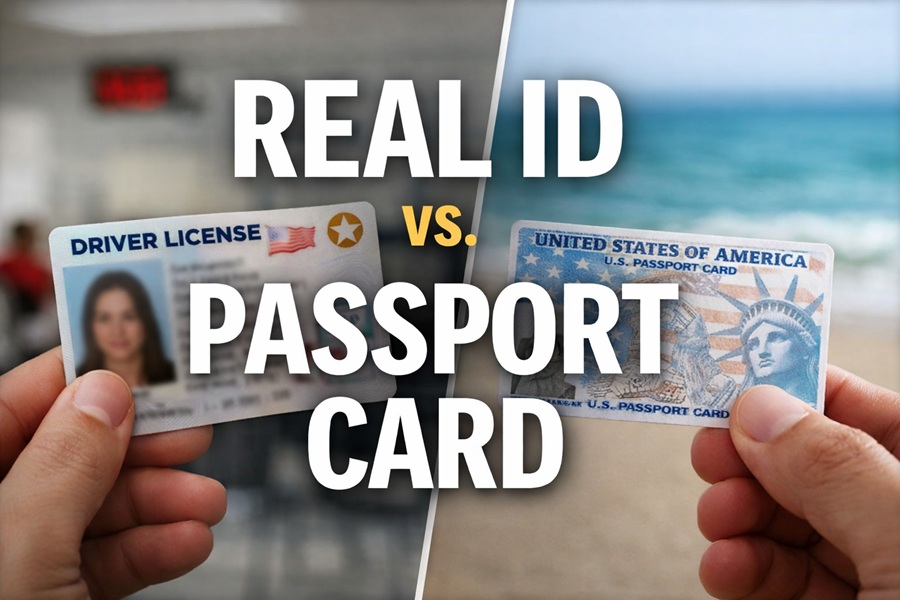Global Entry’s slick kiosks and expedited airport lines hide a more unsettling picture - a government system embedded with deep surveillance potential and little individual control. We take a detailed comb through Global Entry's fine print and reveal the most concerning aspects.
1. Daily Scrutiny: Ongoing Monitoring Post-Approval
Even after you pass your Global Entry screening, the surveillance doesn’t stop. Newsweek revealed CBP continues to run daily database checks on Global Entry members - even when you’re not traveling. Behavioral and legal changes can instantly flag you, impacting your eligibility without warning.
2. Broad Biometric Sharing and Immunity from Privacy Laws
Not only does Global Entry collect fingerprints and photos, but that data is stored in two central repositories - GES and DHS's IDENT system. These systems are explicitly exempt from Privacy Act protections, meaning you cannot review, correct, or even access your own data.
3. Concerningly Vague Data Sharing Rules
The GES system includes vague “routine uses” that permit sharing your data with virtually any federal, state, or international agencies - without your knowledge or consent. That creates a slippery slope where data can be used for undefined purposes far beyond its intended security use.
4. Automated Risk Profiling That You Can’t Contest
Data from your travels feeds into the Orwellian Automated Targeting System (ATS), which assigns a secretive "risk score". You have no right to see or correct it, yet it can follow you for decades - up to 40 years - and be shared with multiple agencies.
5. Facial Recognition's Path to Total Tracking
CBP is rapidly expanding facial recognition under programs like TVS and the Biometric Exit initiative. The methodology - capturing you at kiosks, jetways, even seaports - is a trojan horse for mass surveillance. Once biometrics become normalized here, they could appear everywhere, from public spaces to automatic tracking loops.
6. Digital Privacy Erosion via Device Data Harvesting
Though not unique to Global Entry, CBP's escalating device searches are deeply troubling. Customs agents are copying data from thousands of phones annually. These records - including photos, messages, contacts, browsing history - can sit in searchable databases for up to 15 years without a warrant.
Final Word: Is Global Entry Worth the Price of Privacy?
Global Entry delivers undeniable convenience - shorter lines, faster entry, and a smoother travel experience. But the trade-off is steep: once you enroll, your personal information, biometrics, and even your travel behaviors become part of vast government systems that operate with little transparency, oversight, or recourse for individuals.
For some, the time saved at airports outweighs these risks. For others, the idea of ongoing surveillance, secret risk scores, and long-term biometric storage raises red flags that no speed at customs can justify.
Ultimately, the choice comes down to what you value more—convenience today or privacy for the long run.
FAQs
Q: Can I control or opt out of my data being used this way?
A: No. Global Entry’s acceptance terms require consent to these surveillance mechanisms. Your only recourse is to cancel your membership.
Q: Is it possible to correct data errors?
A: No. Because GES and ATS are exempt from Privacy Act access rules, you cannot view or amend data tied to your profile or risk score.
Q: Will I be targeted just because I'm in Global Entry?
A: Membership subjects you to daily database checks, active surveillance, and risk profiling—none of which you're notified about.
Q: How dangerous is the facial recognition expansion?
A: Very. Once normalized at airports, facial biometrics can easily extend into everyday surveillance—shopping malls, public transit, streets—creating a near-constant tracking network.
Q: Is this overblown paranoia?
A: The technology exists today. CBP’s steady rollouts and exemptions from privacy laws suggest future overreach isn’t fear—it’s impending reality.


